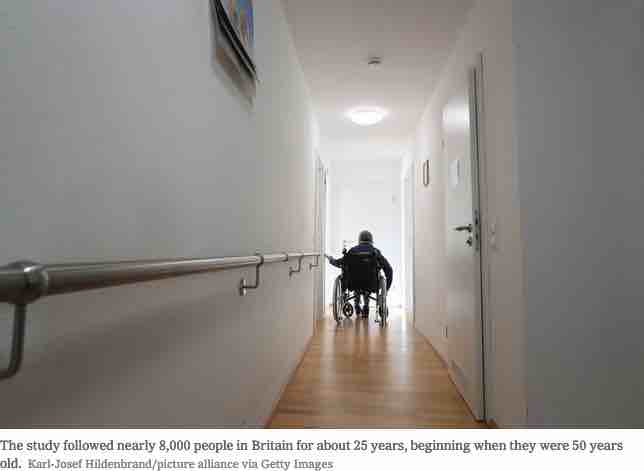Could getting too little sleep increase your chances of developing dementia?
For years, researchers have pondered this and other questions about how sleep relates to cognitive decline. Answers have been elusive because it is hard to know if insufficient sleep is a symptom of the brain changes that underlie dementia — or if it can actually help cause those changes.
Now, a large new study reports some of the most persuasive findings yet to suggest that people who don’t get enough sleep in their 50s and 60s may be more likely to develop dementia when they are older.
The research, published Tuesday in the journal Nature Communications, has limitations but also several strengths. It followed nearly 8,000 people in Britain for about 25 years, beginning when they were 50 years old. It found that those who consistently reported sleeping six hours or less on an average weeknight were about 30 percent more likely than people who regularly got seven hours sleep (defined as “normal” sleep in the study) to be diagnosed with dementia nearly three decades later.
“It would be really unlikely that almost three decades earlier, this sleep was a symptom of dementia, so it’s a great study in providing strong evidence that sleep is really a risk factor,” said Dr. Kristine Yaffe, a professor of neurology and psychiatry at the University of California, San Francisco, who was not involved in the study.
Pre-dementia brain changes like accumulations of proteins associated with Alzheimer’s are known to begin about 15 to 20 years before people exhibit memory and thinking problems, so sleep patterns within that time frame could be considered an emerging effect of the disease. That has posed a “chicken or egg question of which comes first, the sleep problem or the pathology,” said Dr. Erik Musiek, a neurologist and co-director of the Center on Biological Rhythms and Sleep at Washington University in St. Louis, who was not involved in the new research.




